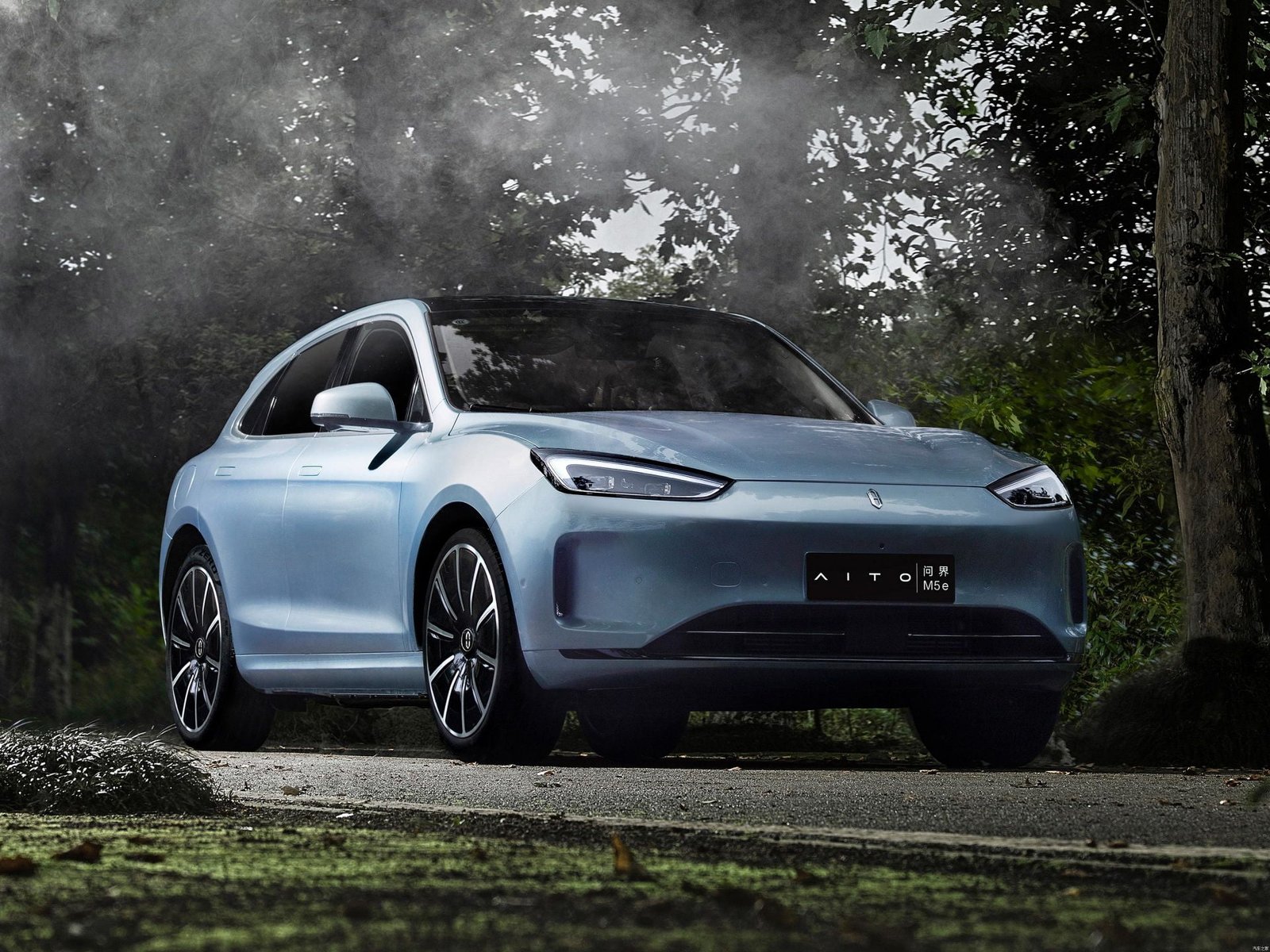Are you a Rwandan business owner or individual looking to source reliable, cost-effective vehicles? Look east! Importing cars directly from China offers significant advantages for the Rwandan market. This comprehensive guide will navigate you through the policies, benefits, and step-by-step process of importing vehicles from China to Kigali and beyond.
Why Import Cars from China to Rwanda?
China isn’t just the world’s largest car manufacturer; it’s become a powerhouse offering compelling benefits for Rwandan importers:
- Competitive Pricing: Chinese manufacturers offer new vehicles at significantly lower price points compared to European, American, Japanese, or even some used imports from other regions. This translates to higher profit margins or more affordable vehicles for Rwandan buyers.
- Wide Variety & Innovation: Find everything from robust SUVs and pickup trucks perfect for Rwanda’s terrain, to compact sedans, buses, and leading-edge New Energy Vehicles (NEVs) like Electric Vehicles (EVs) and hybrids. China leads in EV technology and production.
- Growing Quality & Reliability: Perception has shifted dramatically. Major brands like BYD, Geely (owner of Volvo), Changan, Great Wall Motors (GWM/Haval), Chery, and SAIC (MG) produce vehicles meeting international quality and safety standards.
- Manufacturing Scale & Flexibility: Access the latest models and potentially negotiate favourable terms due to massive production capacity. Some suppliers offer customization options.
- Strong Government Support: China actively promotes exports, facilitating trade processes and offering manufacturer incentives.

Understanding Rwandan Import Regulations & Policies
Before shipping, understanding Rwanda’s regulatory landscape is crucial:
- East African Community (EAC) Standards: Rwanda adheres to EAC vehicle standards. Ensure your chosen vehicle complies with relevant EAC emissions (currently Euro 4/IV equivalent), safety, and technical regulations. Vehicles typically need an EAC Certificate of Conformity (CoC).
- Age Restrictions: Rwanda has restrictions on importing older vehicles. Check the latest regulations with the Rwanda Revenue Authority (RRA) or Rwanda Standards Board (RSB), but generally, imports newer than 5-8 years are preferred or mandated for certain types (commercial vs. personal).
- Environmental Considerations: Rwanda is proactive on environmental issues. Importing newer, fuel-efficient vehicles, especially hybrids or EVs, aligns well with national goals and may face fewer regulatory hurdles (or even incentives long-term) compared to older, high-emission vehicles.
- Import Duties & Taxes (RRA): Be prepared for the following key costs (subject to change, always verify with RRA):
- Import Duty: Typically calculated as a percentage of the vehicle’s Customs Value (CIF Value – Cost, Insurance, Freight).
- Excise Duty: Based on engine capacity (cc) and vehicle type (e.g., sedans vs. SUVs vs. buses).
- Value Added Tax (VAT): 18% applied to the sum of the Customs Value + Import Duty + Excise Duty.
- Withholding Tax (WHT): May apply in certain circumstances.
- Rwanda Standards Board (RSB) Fees: For inspection and certification.
- Restricted/Prohibited Imports: Certain vehicle types might be restricted or require special permits. Always confirm the status of your chosen vehicle model.
The Step-by-Step Import Process: From China to Rwanda
Here’s a breakdown of the key stages:
- Research & Supplier Selection (Most Critical Step!):
- Identify Needs: Define the vehicle type, specifications (engine size, fuel type, transmission), quantity, and budget.
- Find Reputable Suppliers: Use platforms like Alibaba, Made-in-China, or attend trade fairs (Canton Fair, Auto China). Vet suppliers meticulously: Check company history, certifications (ISO, export licenses), request references, read reviews. Beware of scams!
- Request Quotes (RFQ): Get detailed quotes including FOB (Free On Board) price, estimated shipping cost, specifications, payment terms, and lead time. Ensure the quote specifies compliance with EAC standards.
- Due Diligence: Consider requesting a pre-shipment inspection report from a third-party agency (e.g., SGS, Bureau Veritas) before final payment or shipping.
- Negotiation & Contract Signing:
- Negotiate price, payment terms (see below), shipping terms (Incoterms – FOB is common), and delivery schedule.
- Sign a Clear Contract: Detail specifications, price, payment terms, Incoterms, delivery, dispute resolution, and compliance requirements (especially EAC CoC).
- Secure Payment:
- Common methods: Letter of Credit (L/C) (safer for larger sums, involves banks), Telegraphic Transfer (T/T) (e.g., 30% deposit, 70% against copy of shipping documents). Avoid full upfront payments without safeguards. Use secure, traceable methods.
- Shipping & Logistics:
- Freight Forwarder: Engage a reliable freight forwarder experienced in China-Rwanda vehicle shipping. They handle:
- Booking Shipping: Primarily done via Sea Freight (RoRo or Container). RoRo (Roll-on/Roll-off) is common for operational vehicles. Container shipping offers more protection.
- Origin Handling: Pickup from supplier, port handling in China (e.g., Shanghai, Tianjin, Guangzhou).
- Ocean Transport: To Dar es Salaam (Tanzania) or Mombasa (Kenya) – the main ports serving Rwanda via the Northern or Central Corridors.
- Cargo Insurance: ESSENTIAL! Insure your shipment against damage or loss during transit. Your forwarder can arrange this.
- Key Documents: Your supplier and forwarder will provide Bill of Lading (B/L), Commercial Invoice, Packing List, Certificate of Origin.
- Freight Forwarder: Engage a reliable freight forwarder experienced in China-Rwanda vehicle shipping. They handle:
- Obtaining EAC Certificate of Conformity (CoC):
- This is vital for customs clearance in Rwanda. It certifies the vehicle meets EAC standards. Application is usually handled by the supplier/manufacturer or their authorized agent before shipment. Provide them with the necessary vehicle details. The CoC is issued by an EAC-approved inspection body.
- Clearing Customs in Rwanda:
- Appoint a Clearing Agent: Highly recommended! A licensed Rwandan customs clearing agent is indispensable. They know the procedures, regulations, and work directly with the Rwanda Revenue Authority (RRA) and Rwanda Standards Board (RSB).
- Required Documents:
- Original Bill of Lading
- Commercial Invoice (duly signed/stamped)
- Packing List
- Certificate of Origin
- Original EAC Certificate of Conformity (CoC)
- Import Declaration Form (IDF) – Prepared by your agent
- Insurance Certificate
- Copy of your ID/Company Registration
- Clearing Agent Authorization Letter
- Process: Your agent submits documents electronically via Rwanda’s Single Customs Territory system. RRA assesses duties and taxes based on the declared value (verified against their database), vehicle specs, and age. RSB verifies compliance. Payment of duties/taxes is made to RRA.
- Physical Inspection: RSB will physically inspect the vehicle upon arrival to confirm compliance with the CoC and standards.
- Transport from Port to Rwanda (Transit):
- Once cleared at the port (Dar es Salaam or Mombasa), your goods need transport to Kigali. Your freight forwarder or a specialized transit trucking company will handle this overland transport via the respective corridor.
- Vehicle Registration in Rwanda:
- Take all documentation (including proof of duty/tax payment, CoC, RSB release) to the Rwanda National Police (Traffic Department) for registration and license plates.
Pro Tips & Important Considerations
- Partner with Experts: A trustworthy freight forwarder and clearing agent are worth their weight in gold. Don’t try to navigate this complex process alone.
- Factor in ALL Costs: Vehicle cost + Shipping + Insurance + Port Fees (Origin & Destination) + Duties & Taxes (RRA) + RSB Fees + Transport to Rwanda + Agent Fees + Registration = Total Landed Cost. Calculate this meticulously before finalizing purchases.
- Payment Security: Prioritize secure payment methods. Escrow services or Letters of Credit offer protection.
- Spare Parts & After-Sales: Consider the availability of spare parts and after-sales service for your chosen brand/model within Rwanda. Build relationships with suppliers for parts support.
- Language Barrier: Use clear, simple English in communications. Consider using a translator if necessary.
- Start Small: For your first import, consider a smaller shipment to test the process and supplier reliability.
- Stay Updated: Regulations and duty rates can change. Regularly consult the Rwanda Revenue Authority (RRA – https://www.rra.gov.rw/) and Rwanda Standards Board (RSB – https://www.rsb.gov.rw/) websites.
Frequently Asked Questions (FAQs)
- Q: What’s the cheapest way to import?
- A: RoRo shipping for operational vehicles is usually cheaper than containers. However, compare quotes and factor in all costs, including potential transit damage risk.
- Q: How long does the entire process take?
- A: Typically 8-14+ weeks: Production/collection (1-4 weeks) + Sea Freight (4-6 weeks China-East Africa) + Customs Clearance & Transit to Rwanda (1-4 weeks). Delays can occur.
- Q: Can I import used cars from China?
- A: Yes, but Rwanda’s age restrictions apply. Ensure the vehicle meets the maximum allowable age and EAC standards. The CoC is still required. Importing newer used cars can be viable, but sourcing reliable ones requires extra diligence.
- Q: Are Chinese cars reliable for Rwanda?
- A: Quality has vastly improved. Stick with major, reputable brands (BYD, Geely, GWM/Haval, Changan, Chery, MG) known for exporting to Africa. Research specific models and read reviews. Proper maintenance is key.
- Q: How do I avoid scams?
- A: VET SUPPLIERS! Avoid deals significantly cheaper than market price. Insist on verifiable company credentials. Use secure payment methods (never Western Union/MoneyGram for deposits). Request factory visit reports or pre-shipment inspections. Trust your instincts.
Drive Your Business Forward!
Importing vehicles directly from China presents a tremendous opportunity for Rwandan businesses to access affordable, diverse, and increasingly high-quality transportation solutions. While the process involves steps and regulations, careful planning, thorough research, and partnering with experienced professionals make it entirely achievable.
Ready to explore your options? Begin researching reputable Chinese manufacturers and connect with experienced freight forwarders today! Have questions about importing a specific vehicle type? Share them in the comments below!
Disclaimer: This guide provides general information. Regulations, duties, and procedures change. Always consult directly with the Rwanda Revenue Authority (RRA), Rwanda Standards Board (RSB), and professional customs clearing agents for the latest, project-specific requirements before importing.




